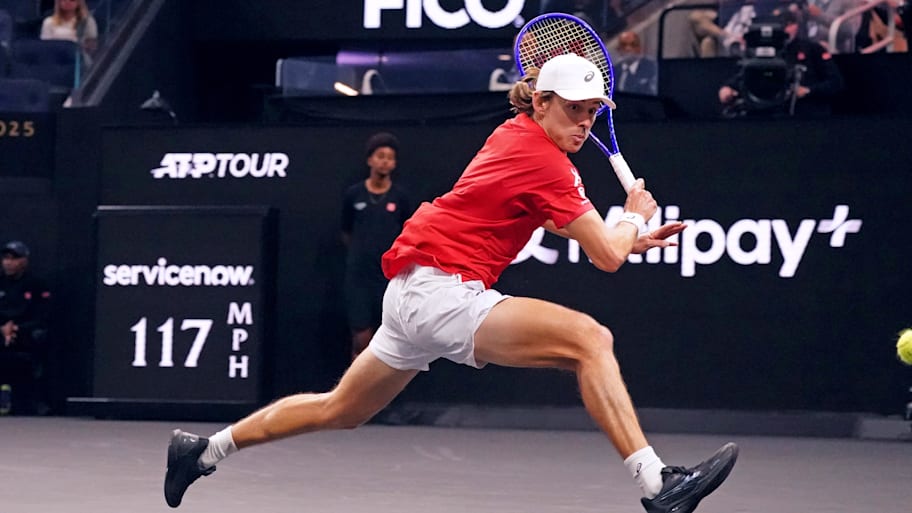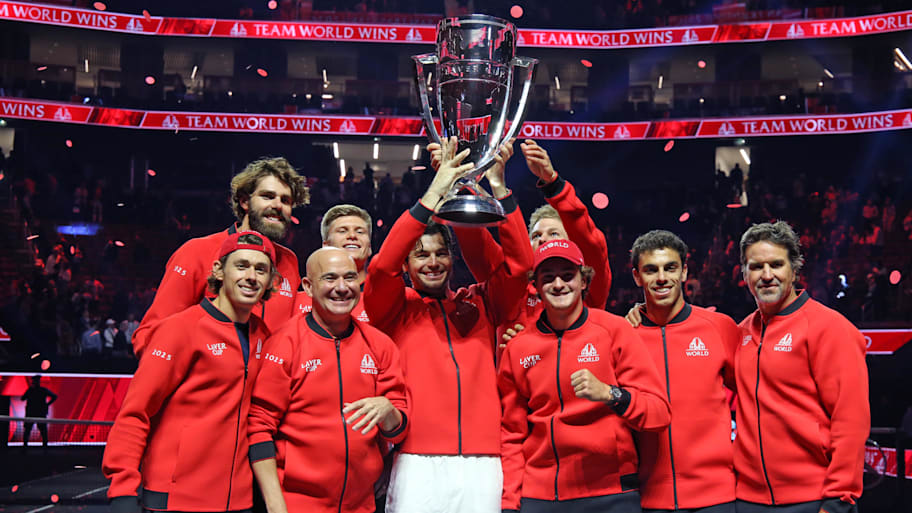Hey everyone,
• Here’s some of my Laver Cup coverage and thoughts. Thanks to those who came to the Served shows. That was a lot of fun.
• Happy 5786 to those who celebrate.
• A busy week means a short mailbag.
Onward …
So, most of the chatter this week was about the Laver Cup and specifically the persistent question: Is it an exhibition?
I would say this:
A) Whatever it is, it’s great for tennis. Not just as a competitive event, but as a kind of traveling tennis festival. It’s a braiding of generations and engages with the host community (tennis community). Before we get too caught up in classifications, let’s acknowledge this as a force of good.
B) If an event departs from the rankings, and eligibility is not determined with strictly objective metrics, it is, by definition, an invitational (i.e., an exhibition). An event that allows the promoter to select the player field—superseding the meritocratic/democratic aspects of the ranking system—is in a different category. (Yes, tournaments may quietly hope that Player X is in the field and Player Y is not, but they can’t depart from the rankings to include a neon player and exclude a higher-ranked pastel.) So, by this definition, the Laver Cup is an exo.
C) However, the real reason “exo” is a loaded term is that it implies that the players are not 100% invested in the competition. That there is nothing at stake. At its most obvious, it’s the hit-and-giggle. (The cliché move is to hand a racket to the ballkids.) Even the wink-wink, you win a set; I win a set; we play for real in the third set, is iffy.
The Laver Cup has none of this. The players are all-in. They compete as they do at a tournament. They get tight (a telltale sign of a legit event).
They argue calls, as Alex Zverev did Saturday. They are euphoric when they win. (Anyone can fake energy for a bit. No one can fake it over three days.)
Here’s what I wrote the other day:
• The players’ motivation for participating in the Laver Cup does not come from the money. It’s not Europe vs. World pride. There are no ranking points. No, it’s reputational. It’s the drive/instinct/compulsion to perform well in such proximity to your rivalries and peers. But unlike a tournament, the people whose opinions you value most—who can most relate to what you’re doing—are watching every point in real time, right there courtside, the equivalent of looking over your shoulder at work. (Oh, and Roger Federer is in the stands, near John McEnroe and Rod Laver.) This is where the magic of the event resides.

Jon, care to weigh in on Taylor Townsend?
Bob C, The OC
• I hate to give it more oxygen, but if you missed it, Taylor Townsend made some injudicious remarks on an Instagram video about Chinese cuisine. She then apologized profusely. This should be the end of it. People can still decide for themselves how mad they want to be or how much this ought to cloud their opinion. But, alas, one of the fundamental hallmarks of our age: shaming-as-sport.
Fueled by the enragement machine that is social media, a misstep rockets around the globe, gets accentuated and accelerated. The bad-faith actors get hold of it, and it pops to the top of feeds.
Full disclosure: I know and like Taylor, and I have worked with her on occasion at Tennis Channel. That aside, she posted something that she shouldn’t have. She apologized and owned it. She has a body of work to offset this unforced error, suggesting this is no reflection of who she is. Let’s move on, shall we?
Same, by the way, for Jeļena Ostapenko. And Daniil Medvedev. And on it goes. In sports, we are pretty good at judging athletes based on their overall body of work, rather than just their best or worst day. A bad loss doesn’t negate all the wins. Why are we so reluctant to do the same for off-court results?
Editorializing: For all the chatter about Townsend’s misstep and apology, there were ZERO other questions this week about the Billie Jean King Cup, which was equally disappointing and remarkable. Its thunder was pilfered by the Laver Cup. It was held in China, which—apart from being problematic for a women’s tennis event in particular—makes for lousy time differences from the U.S. and Europe.
For the record, bravo to the Italian team, which defended its crown, taking out the Americans in the final. Elisabetta Cocciaretto (who, ironically, beat Jessica Pegula at Wimbledon) took out Emma Navarro. Then, Jasmine Paolini beat Pegula. And there was no need for the much-anticipated Paolini/Sara Errani vs. Townsend/Pegula doubles final. Italy has now won six titles at this event (formerly known as the Fed Cup), all of which have occurred this century.
Hi Jon,
Can we just officially say the largely American push to have the Davis Cup played in a single country in mostly dull atmospheres has been a disaster? That the scenes and emotions in the home and away ties on the weekend prove that Davis Cup belongs only in a home and away format, or not at all?
Russell, Melbourne, Australia
• I might quibble with “largely American push.” In fact, I will quibble with it. But your point stands. After years of neglect—and telling critics why they were wrong to cite the Davis Cup’s defects and its slouch toward irrelevance—the ITF blew up the model. Apart from the financial catastrophe, this new iteration ain’t working. Half the energy came from the home crowd and the partisan atmosphere. The Davis Cup is how many federations get a lot of their funding. So, the calls to simply cut bait aren’t realistic, but the single-site approach isn’t the answer.
Shots
• This occurred several months but was asked to mention it. RIP Gary Kitchell, who worked with many players over the years.
• The ATP announced the appointment of Eno Polo as its new Chief Executive Officer (CEO), effective immediately.
A former professional tennis player, Polo was born and raised in Kenya and represented the Kenyan national team in Davis Cup competition, before embarking on an international business career. He has since held senior leadership roles at Nike, Juventus F.C., Havaianas, Global Brands Group and LeDap, among others.
Polo succeeds Massimo Calvelli, who stepped down as CEO in June 2025 following more than five years of leadership. He will be based at the ATP’s London office.
More Tennis on Sports Illustrated
This article was originally published on www.si.com as Tennis Mailbag: Why Laver Cup Isn’t Like Other Exhibitions.
